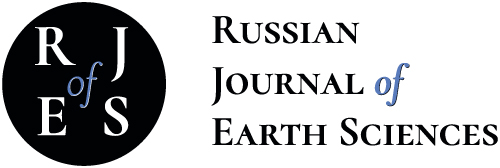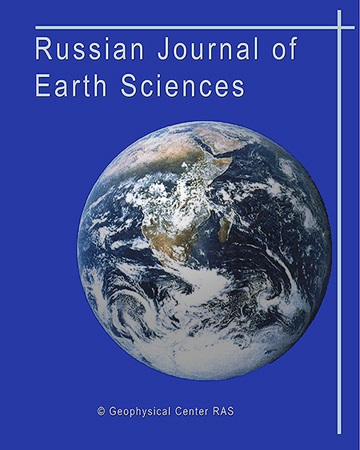Full-scale numerical modeling of the geodynamic evolution of the Earth throughout its existence is performed in terms of the thermochemical model of mantle convection proposed by the authors. Numerical modelling results are visualized in color and their detailed videorecord is presented. The global geodynamic process is clearly characterized by the presence of cycles of different lengths. Hydrodynamic pulsations associated with reorganizations of convective cells in the upper mantle correlate well with the geological cycles of Stille ~30nbsp;Myr. Moreover, the numerical experiments have shown that large avalanche-like flows of substance from the upper mantle into the lower mantle through their endothermic interface took place during the geodynamic evolution of the Earth; these impulsive downward flows significantly differ both quantitatively and qualitatively. In particular, impulsive flows of upper mantle substance into the lower mantle on a continental or regional scale the so-called avalanches, also observable in our model, correspond in our interpretation to the geological cycles of Bertrand ~170nbsp;Myr. In addition, numerical experiments revealed the presence of basically new impulsive flows of upper mantle substance into the lower mantle on a planetary global scale that are referred to as overturns; about half of the upper mantle material is replaced by the material of the lower mantle over a relatively short time of the development of such an overturn. In our interpretation, the mantle overturns correlate with the Wilson cycles 700-900nbsp;Myr, which is evidence of their geodynamic nature and accounts for such major geological events as periodic assemblages and breakups of continent, the asymmetric structure of the Earth, and others. As the mantle cools during the evolution of the Earth, mantle overturns gradually attenuate and degenerate into mantle avalanches.
geodynamic evolution, numerical analysis, thermochemical model, mantle convection.
1. Artyushkov, Geodynamics, 1979.
2. Bercovici, Science, v. 244, 1989., doi:https://doi.org/10.1126/science.244.4907.950
3. Christensen, J. Geophys. Res., v. 89, 1984.
4. Dziewonski, Science, v. 236, 1987., doi:https://doi.org/10.1126/science.236.4797.37
5. Fukao, J. Geol. Soc. Japan, v. 100, no. 1, 1994.
6. Glatzmaier, Nature, v. 347, 1990., doi:https://doi.org/10.1038/347274a0
7. Ito, J. Geophys. Res., v. 94, 1989.
8. Ito, Science, v. 249, 1990., doi:https://doi.org/10.1126/science.249.4974.1275
9. Jeanloz, Rev. Geophys., v. 21, 1983.
10. Keondzhyan, Dokl. Akad. Nauk SSSR, v. 253, no. 1, 1980.
11. Khain, Fundamental Problems of General Tectonics, 2001.
12. Lobkovsky, General Problems of Tectonics: Tectonics of Russia, 2000.
13. Lobkovsky, Problems of Global Geodynamics: Proceedings of the OGGGGN RAN Theoretical Seminar of 1998-1999, edited by D. V. Rundkvist, 2000.
14. Lobkovsky, Tectonics of Neogea: Global and Regional Aspects, 2001.
15. Lobkovsky, Tectonics and Geodynamics of the Continental Lithosphere, 2003.
16. Machetel, Nature, v. 350, 1991., doi:https://doi.org/10.1038/350055a0
17. Maruyama, J. Geol. Soc. Japan, v. 100, no. 1, 1994.
18. Monin, Dokl. Akad. Nauk SSSR, v. 294, no. 1, 1987.
19. Monin, Dokl. Akad. Nauk SSSR, v. 295, no. 5, 1987.
20. Myasnikov, Evolutionary Models of the Earth and Terrestrial Planets, 1980.
21. Solheim, J. Geophys. Res., v. 99, no. B4, 1994., doi:https://doi.org/10.1029/93JB02168
22. Sorokhtin, Global evolution of the Earth, 1991.
23. Tackley, Nature, v. 361, 1993., doi:https://doi.org/10.1038/361699a0
24. Trubitsyn, Russian J. Earth Sci., v. 1, no. 2, 1998.
25. Trubitsyn, Problems of Global Geodynamics: Proceedings of the OGGGGN RAN Seminar of 1998-1999, edited by D. V. Rundkvist, 2000.
26. Van Keken, J. Geophys. Res., v. 102, no. B10, 1997., doi:https://doi.org/10.1029/97JB01353
27. Vityazev, Zemlya i Vselenaya, no. 2, 1990.














